“Can you help me?” That’s a question we learn to avoid from an early age. If you’ve been around children, you know that point in development where they insist, “Me do it!” Unfortunately, that stubborn independence rarely fades with age. Asking for help is a confession of weakness, an acknowledgment that we can’t do something alone. It’s a humbling truth to admit. Perhaps that’s why the Lord chose to end the creation story with a slow, extended observation of our need for help.
Throughout Genesis 1, we read a repeated refrain: “God saw that it was good” (Genesis 1:4, 10, 12, 18, 21, 25).That refrain culminates with the announcement “God saw all that he had made, and it was very good indeed” (Genesis 1:31). So, in Genesis 2, it’s shocking to read, “It is not good for the man to be alone. I will make a helper corresponding to him” (verse 18). God’s stressing the point: This is really bad.
Why is it not good for the man to be alone? Is it because he’s lonely? No, it can’t be that, because he has God. Is it because there’s safety in numbers? No, he has the Lord as his protector and provider. God’s remedy reveals the answer: “I will make a helper corresponding to him.” It’s not good for the man to be alone, because he needs a human helper. He’s incapable of ruling the earth or serving in the garden alone. God designed the first human being with a deficiency, a weakness. Before the Fall, sin, and death, God made us weak.
Weakness itself is not what the Lord declares not good. It’s not wrong that the man needs help. If that were the case, the Lord would have altered him so he could fulfill his calling alone. But the Lord doesn’t do that. Instead, he makes another human (the woman) so that they can accomplish their purpose together, her adding her strength to his.
The Lord really, really wants us to see this weakness. That’s why he saved this bit for the end. Among God’s last recorded words in the creation story are “It is not good for the man to be alone” (Genesis 2:18). It is as though God shouts, “Humans. Are. Weak!” The sentence that follows in the same verse is just as important: “I will make a helper corresponding to him.” The woman is God’s solution—but she’s God’s solution. The remedy isn’t provided by the man or the woman. The help only arrives because the Lord supplies it. God’s the one who delivers strength for our every weakness. The Lord alone enables us to do the work he gave us. “It is not good for the man to be alone” isn’t an assessment limited to the creation of the first man. It’s an ongoing, by-design, good reality that continues today.
Weakness matters because it’s the backdrop against which God displays his strength. When we deny our weakness, we reject God’s power. When we boast in ourselves, we deny God’s provision. Weakness exists to display God’s glory in everything.
Weakness is God’s good gift because it’s the context in which he gives us himself. If we weren’t weak, we wouldn’t need God—we would rival him. “What do you have that you didn’t receive? If, in fact, you did receive it, why do you boast as if you hadn’t received it?” (1 Corinthians 4:7). Embracing our weakness trains us to humble ourselves and to boast in God. Such weakness is good news because God loves the weak, and only the weak can genuinely love God. Weakness is a holy invitation to allow grace to do its work.
God loves the weak. All creation is ultimately weak—especially us. But God isn’t looking down his nose, despising his creatures for needing him. No, he approves of it! “God saw all that he had made, and it was very good indeed” (Genesis 1:31). God loves his weak creation! He enjoys supplying us with good things from his hand to give us strength and gladden our hearts. God’s love for the weak doesn’t change when sin enters the picture. He continues to love the humble, the lowly, the poor, and the downcast. “He raises the poor from the dust and lifts the needy from the trash heap” (Psalm 113:7).
Only the weak can genuinely love God. “God resists the proud but gives grace to the humble” (James 4:6). God resists the proud because they resist him. The proud person cannot admit he’s weak; he can’t accept that he has needs only God can supply. Therefore, he cannot trust God. But the humble know who they are before the Lord; apart from him, they are and have nothing. Consequently, they seek him and trust him to provide.
Weakness reminds us that God designed all of life to be lived by faith. He didn’t create us to live by our own power, only introducing the need for faith once we needed to be saved from sin and death. Life, liberty, and happiness aren’t found in our independence. They’re rooted entirely in our dependence on the Lord. From the beginning, God made us look to him for all we are and all we need. Weakness is the soil in which faith grows—and faith is where life flourishes.
So, friend, don’t be ashamed of your weakness. Don’t hide it. Don’t think it makes you unable to approach God. Don’t despair, thinking it means that true strength is not available. Let’s embrace and celebrate weakness so we can embrace and celebrate all that God is for us and gives to us in Jesus Christ.
***
Weak by design.
The Good Gift of Weakness, by Eric M. Schumacher, conducts a deep dive into the central theme of weakness in the Bible. While it’s no secret that our culture idolizes human strength, a closer look at Scripture reveals our incredible vulnerability and reliance on Christ. As readers journey from Genesis to Revelation throughout the book they will see that God’s power is made perfect when people are at their weakest. Far from an undesirable effect, God designed our weakness to draw us closer to himself.
Read more about The Good Gift of Weakness here.

Leave a Reply